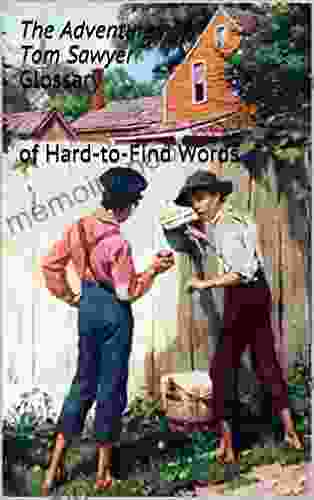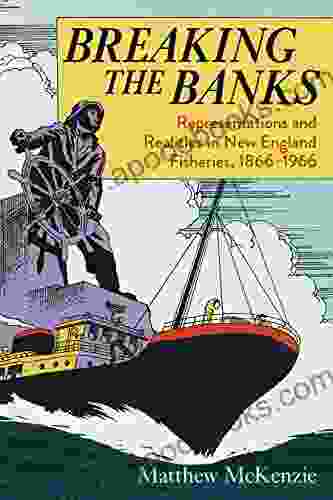Existentialism: Exploring the Labyrinth of Human Existence

5 out of 5
| Language | : | English |
| File size | : | 71 KB |
| Text-to-Speech | : | Enabled |
| Enhanced typesetting | : | Enabled |
| Word Wise | : | Enabled |
| Print length | : | 50 pages |
| Screen Reader | : | Supported |

Unveiling the Enigma of Human Existence
The Essence of Existentialism
Existentialism, a profound philosophical movement that emerged in the 19th century, has left an indelible mark on our collective consciousness. It grapples with fundamental questions about the nature of human existence, delving into the complexities of freedom, responsibility, and the search for meaning in a world that often appears absurd. Existentialist thinkers believe that human beings are not merely the products of their environment or genetic inheritance but rather are responsible for shaping their own destinies through their choices and actions.
Key Existentialist Themes
- Freedom: Existentialists emphasize the radical freedom inherent in human existence. We are not bound by predetermined paths but rather possess the power to choose our own actions and forge our own futures.
- Responsibility: With great freedom comes great responsibility. Existentialists argue that we cannot escape our responsibility for the consequences of our choices, both for ourselves and others.
- Meaning: In a world that often seems devoid of inherent meaning, existentialists contend that we must create our own meaning through our actions and interactions with others.
- Absurdity: Existentialists recognize the inherent absurdity of human existence. We are finite beings thrown into an infinite universe, and our attempts to find ultimate meaning may ultimately prove futile.
Influential Existentialist Thinkers
Numerous philosophers and writers have contributed to the development of existentialism, each offering their unique perspectives on the human condition. Some of the most influential existentialist thinkers include:
- Jean-Paul Sartre: A French philosopher and playwright, Sartre is known for his existentialist masterpiece "Nausea." He argued that existence precedes essence, meaning that we are not born with a predetermined identity but rather create ourselves through our choices.
- Albert Camus: A French philosopher and novelist, Camus is best known for his existentialist novel "The Stranger." He explored themes of absurdity and the search for meaning in a meaningless world.
- Søren Kierkegaard: A Danish philosopher and theologian, Kierkegaard is considered the father of existentialism. He emphasized the importance of individual subjectivity and the importance of living an authentic life.
Implications for Psychology
Existentialism has had a significant impact on the field of psychology, particularly in the development of existential psychotherapy. Existential psychotherapists help clients to explore their own unique experiences and to grapple with the challenges of freedom, responsibility, and meaning. They believe that by embracing their own existence and taking responsibility for their choices, clients can find greater fulfillment and authenticity in life.
Existentialism is a complex and multifaceted philosophy that offers profound insights into the human condition. It challenges us to confront the absurdities of life, to embrace our freedom and responsibility, and to strive to create our own meaning in a world that is both beautiful and terrifying. Whether you are a seasoned philosopher or simply someone seeking to understand the depths of human existence, "Existentialism: The Psychology and Philosophy of Existentialist Thinkers" is an essential read. Through the wisdom of existentialist thinkers, you will embark on a philosophical journey that will forever alter your perspective on life.
5 out of 5
| Language | : | English |
| File size | : | 71 KB |
| Text-to-Speech | : | Enabled |
| Enhanced typesetting | : | Enabled |
| Word Wise | : | Enabled |
| Print length | : | 50 pages |
| Screen Reader | : | Supported |
Do you want to contribute by writing guest posts on this blog?
Please contact us and send us a resume of previous articles that you have written.
 Book
Book Novel
Novel Page
Page Chapter
Chapter Text
Text Story
Story Genre
Genre Reader
Reader Library
Library Paperback
Paperback E-book
E-book Magazine
Magazine Newspaper
Newspaper Paragraph
Paragraph Sentence
Sentence Bookmark
Bookmark Shelf
Shelf Glossary
Glossary Bibliography
Bibliography Foreword
Foreword Preface
Preface Synopsis
Synopsis Annotation
Annotation Footnote
Footnote Manuscript
Manuscript Scroll
Scroll Codex
Codex Tome
Tome Bestseller
Bestseller Classics
Classics Library card
Library card Narrative
Narrative Biography
Biography Autobiography
Autobiography Memoir
Memoir Reference
Reference Encyclopedia
Encyclopedia Elizabeth Henshall
Elizabeth Henshall Marybeth Gasman
Marybeth Gasman John A Lynn
John A Lynn Claire Lombardo
Claire Lombardo Rachel Amphlett
Rachel Amphlett Laura Madeleine
Laura Madeleine Adrian Dashfield
Adrian Dashfield Conrad Bauer
Conrad Bauer Mary Cowhey
Mary Cowhey Jan Gayle
Jan Gayle Alex Hormozi
Alex Hormozi Cassie Brown
Cassie Brown Tripp Ellis
Tripp Ellis Lois Ruskai Melina
Lois Ruskai Melina Tiffany Carby
Tiffany Carby Roderick Beaton
Roderick Beaton Jeff Apter
Jeff Apter Agha Bayramov
Agha Bayramov Kimberly Johnson
Kimberly Johnson Ralph Nader
Ralph Nader
Light bulbAdvertise smarter! Our strategic ad space ensures maximum exposure. Reserve your spot today!
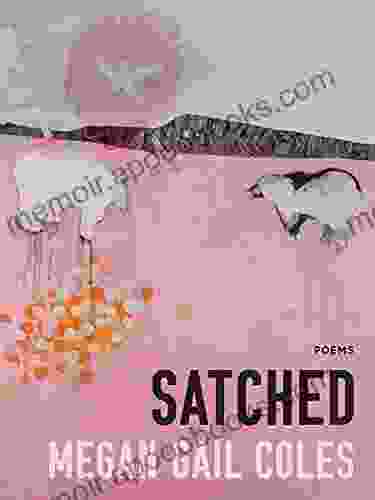
 Orson Scott CardEscape into the Captivating World of "Satched" by Megan Gail Coles: A Novel...
Orson Scott CardEscape into the Captivating World of "Satched" by Megan Gail Coles: A Novel...
 Corey GreenHorses Are Stars: Tom Thelen's Captivating Journey and Extraordinary Equine...
Corey GreenHorses Are Stars: Tom Thelen's Captivating Journey and Extraordinary Equine...
 Brenton CoxThe Musician's Essential Guide to Musical Theatre: Your Complete Resource for...
Brenton CoxThe Musician's Essential Guide to Musical Theatre: Your Complete Resource for... Luke BlairFollow ·19.3k
Luke BlairFollow ·19.3k John KeatsFollow ·9.4k
John KeatsFollow ·9.4k Chadwick PowellFollow ·11.3k
Chadwick PowellFollow ·11.3k Kenneth ParkerFollow ·3.9k
Kenneth ParkerFollow ·3.9k Herman MitchellFollow ·16.3k
Herman MitchellFollow ·16.3k Cameron ReedFollow ·19.7k
Cameron ReedFollow ·19.7k Jason HayesFollow ·14.7k
Jason HayesFollow ·14.7k H.G. WellsFollow ·15.7k
H.G. WellsFollow ·15.7k
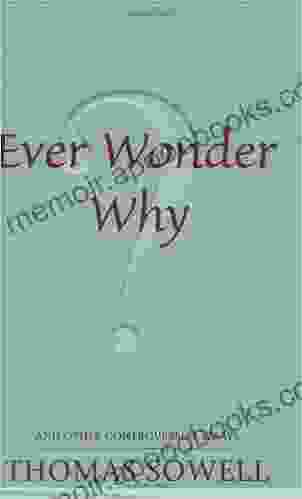
 Jamie Bell
Jamie BellUnlock Your Mind with "Ever Wonder Why And Other...
Prepare to...

 Robert Frost
Robert Frost30 Day Betting Challenge: Transform Your Betting Habits...
Are you tired of...
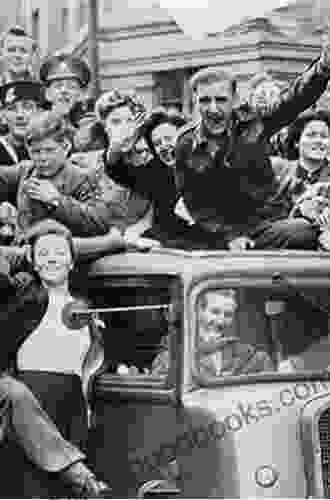
 Derrick Hughes
Derrick HughesWhat Is Victory In War? Unraveling the Enigma of Triumph
The Illusion...
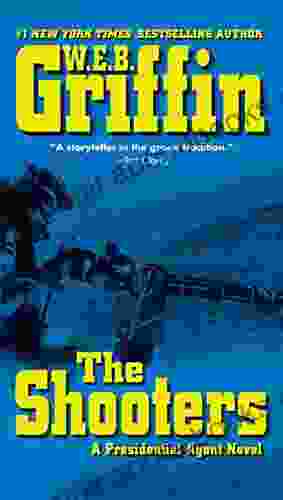
 Jesse Bell
Jesse BellThe Shooters: A Gripping Presidential Agent Novel That...
Enter the Shadowy World of...
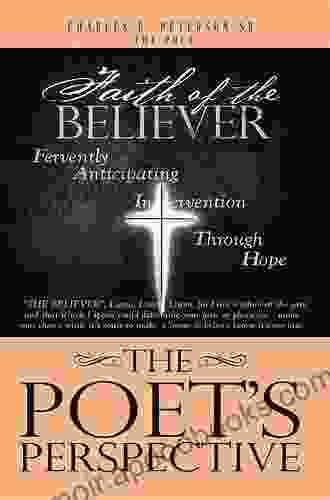
 Ernest Hemingway
Ernest HemingwayUnlocking the Theological Depths of Paul Claudel: An...
Prepare to embark on an...
5 out of 5
| Language | : | English |
| File size | : | 71 KB |
| Text-to-Speech | : | Enabled |
| Enhanced typesetting | : | Enabled |
| Word Wise | : | Enabled |
| Print length | : | 50 pages |
| Screen Reader | : | Supported |





